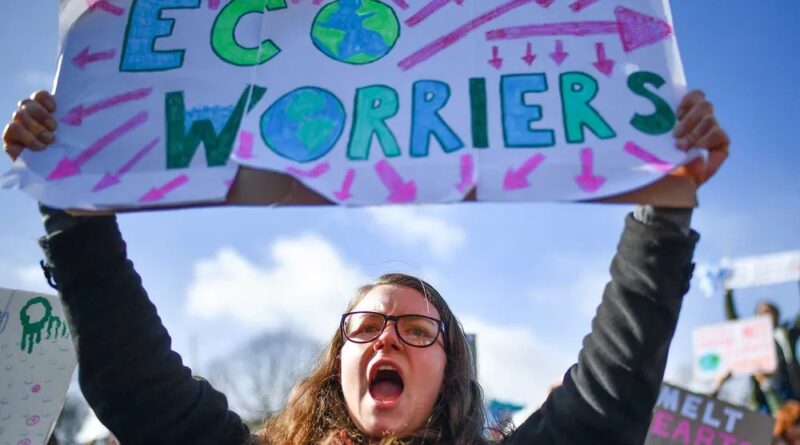Climate Anxiety: We Can Manage It
You can’t avoid them.
On Instagram, TikTok, and the forum previously known as Twitter, whether it’s wildfires raging in California, extreme flooding in New York City, hurricane damage in Florida, or some other unimaginable disaster, the video footage is there. Extreme weather garners constant doom coverage from the media (were any of us able to turn off CNN after Hurricane Katrina drowned New Orleans?) but social media is no better—and many people can’t look away. The distressing scenes of people being displaced and homes being destroyed—sometimes referred to as trauma porn—has an impact on our mental health.
How could it not?
In 2021, Google searches for “climate anxiety” rose by 565%. Anxiety in all forms is real. We live in a world where parents wonder if they will see their children at the end of the school day. Economic pressures abound, with nearly one quarter of Americans having no emergency savings. On top of other typical stresses like dealing with aging parents, navigating relationships, and demands at work. Piling on all this stress is climate or eco-anxiety, distress related to worries about the effects of climate change and rooted in uncertainty about the future. Oftentimes, anxiety about the climate is accompanied by feelings of grief, anger, guilt, and shame, which can in turn affect mood, behavior, and thinking.
According to the 2023 Report by Yale Program on Climate Change Communication, about 30% of Americans say they are “very worried” about global warming. The statistic represents a significant portion of the population grappling with the emotional toll of climate-related distress.
Regardless if people are directly impacted by extreme weather events such as hurricanes, earthquakes, or wildfires, the pervasive threat of climate change can have profound effects on mental health. Worry and concern over the possibility of being displaced, loss of home, and economic loss can lead to feelings of hopelessness, as well as anxiety of pending climate despair. There is no question these thoughts and feelings are complex and can be overwhelming.
In Florida, some people talk about displacement trauma, a feeling of dread after repeated evacuations. Equally traumatizing is survivor’s guilt, when a natural disaster hits one community but saves others and those not in the path feel bad for being spared.
Within this complex emotional landscape, there lies an opportunity for resilience. It is not enough to be concerned; we must translate that concern into constructive action. Collective efforts to address environmental issues, champion sustainable practices, and advocate for policies prioritizing the well-being of our planet can provide a tangible sense of agency and purpose. Initiatives at both individual and community levels contribute to the global movement toward a more sustainable future.
Fostering open conversations about climate anxiety is an essential step toward breaking the stigma surrounding mental health discussions. Sharing our experiences, fears, and hopes creates a supportive environment where individuals can find solace and understanding. Additionally, a conscious effort to reduce information overload, steering clear of the doom-scrolling which only intensifies anxiety, allows for a more measured and balanced understanding of the environmental challenges we face.
Mindfulness practices, such as meditation and deep breathing exercises, offer tools to navigate the emotional turbulence caused by climate anxiety. By grounding ourselves in the present moment, we can cultivate resilience and clarity, enabling us to respond to the challenges ahead with a balanced perspective.
Another way is to take stock of what you can control, such as products you buy, your wellness routine, and the foods you consume. Small efforts, when compounded, make a big impact. Reducing single use plastics, walking instead of driving, choosing toiletries that are environmentally friendly, and opting for reusable shopping bags are all small changes that are helpful to creating a sense of control and empowerment of doing your part.
Climate anxiety is a real and growing concern. The uncertainty of climate change can take a toll on our mental health, but there are steps we can take to manage it. By taking constructive action, fostering open conversations, and practicing mindfulness, we can find a path towards resilience and hope in the face of an uncertain future. Climate change is a collective challenge, and by addressing the anxiety it brings, we can better equip ourselves to tackle it together.
Originally written for and published on RealClear Energy.

